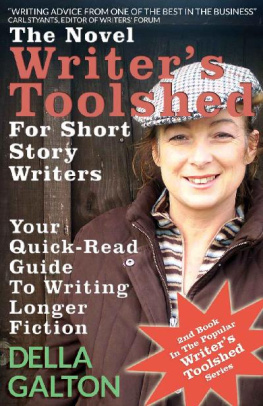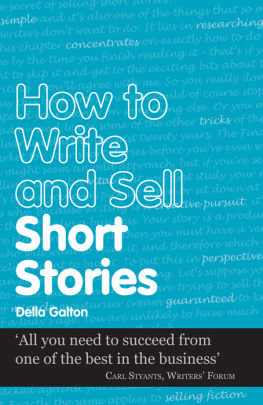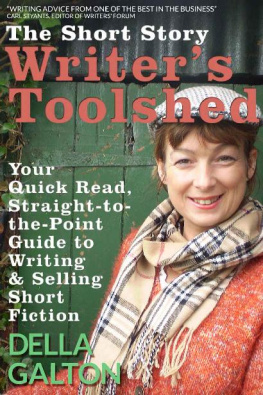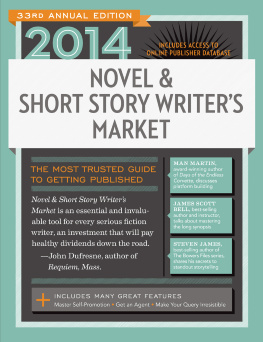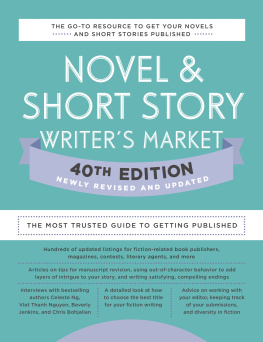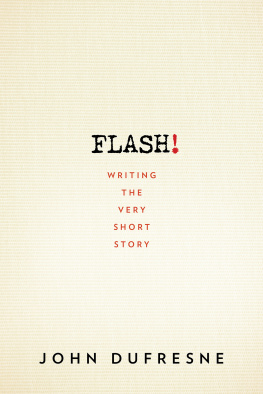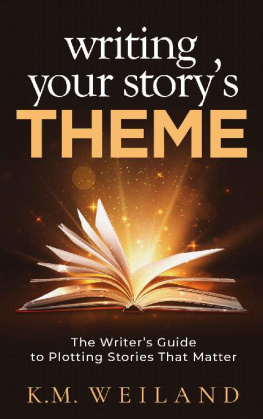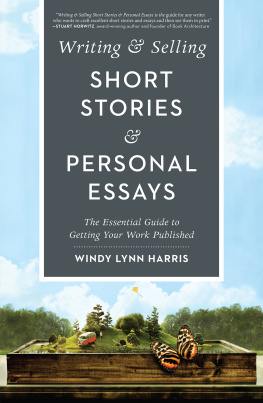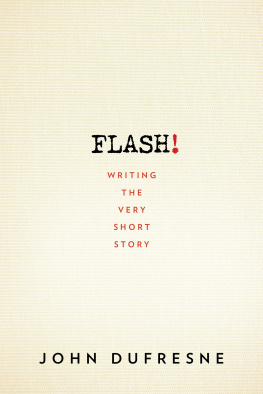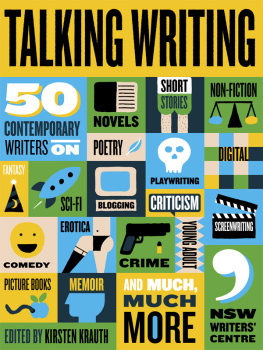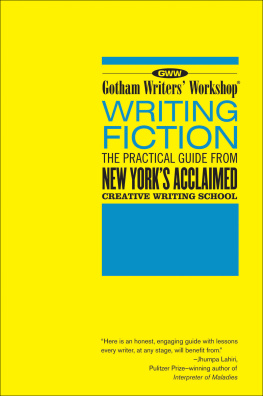All rights reserved.
No part of this publication may be reproduced, in any form, without the prior permission of the copyright owner
Please visit dellagalton.co.uk
for contact details
This book is also available in paperback.
Please visit
www.dellagalton.co.uk
for more details.
For Gaynor Davies,
with grateful thanks for your help, advice and friendship across the years.
love
Della
About Della Galton
Della Galton is a freelance writer and tutor. She is best known for her short stories, and sells in the region of 80 short stories a year to magazines both in the UK and abroad.
She is a popular speaker at writing conventions around the UK and is also the agony aunt for Writers Forum.
When she is not writing she enjoys walking her dogs in the beautiful Dorset countryside where she lives. Her hobby is repairing old cottages, which is lucky as hers is falling down.
Find out more about Della, her books, and her speaking engagements at DellaGalton.co.uk
Introduction
The Short Story to Novel Toolshed was originally written as a series for Writers Forum Magazine. It is aimed at short story writers who would like to write their first novel. It will also be useful for novelists who would like to write short stories. And itll probably be useful to anyone who hasnt written much at all, but would like to try their hand at either short stories or novels. It is designed to show you the differences between the two forms.
This version has been amended and updated and includes brand new material. It is intended to be a quick guide for the writer who doesnt want to wade through a lengthy tome. It complements my more comprehensive guide, Moving On From Short Story to Novel, published by Accent Press.
How The Toolshed Works
Every writer has certain tools at their disposal. We all in fact use the same tools when it comes to writing, but were not necessarily that adept when we set out, particularly when making a transition from one type of writing to another. The tools may be the same, but their application is slightly different. This book is a little like an instruction manual, which Im hoping might save you some time.
So, what exactly do we have in our toolshed? Well this particular toolshed is divided into shelves and on the shelves you will find the following tools:
* Shelf one: planning, plotting, pace and timescale
* Shelf two: setting; shelf three: characters and viewpoint
* Shelf four: dialogue
* Shelf five: the first page and beyond
* Shelf six: development, author voice and endings
* Shelf seven: structure and flashback
* Shelf eight: editing and revision
* Shelf nine: the title, the synopsis, the blurb
* Shelf ten: finding an agent or publisher.
If you like you can work through the entire toolshed, or you might prefer to go straight to the relevant shelf. But to begin let me take you on a whistle-stop tour of the toolshed. Lets examine some of the obvious differences between writing short stories and writing novels, as well as having a quick look at some of the available tools.
Short Stories Versus Novels Whats the Difference?
Making the transition between writing short stories and writing your first novel isnt as simple as you might think. Or at least it wasnt for me. Id had a fair amount of success with my short stories and I didnt think that writing a novel would present too much of a problem. Surely it was just a short story with more words, more characters and more plot, wasnt it?
No doubt, some of you are already sniggering at my naivety, and I was nave. I made a lot of mistakes before I managed to write a publishable novel. Many of them were down to assumptions I had that simply werent true.
Yes, there are similarities between the short story and the novel and yes many of the techniques used for one can be transferred successfully to the other, but there are an awful lot of differences too.
The object of this book is to help you avoid some of the mistakes I made. Lets take a quick look at some of the differences before we go into more detail about whats in the toolshed, and hopefully this will make your transition a little smoother than mine was!
Length
This is probably the most obvious difference. Not many short stories are longer than about 5,000 words and even a short novel is at least ten times longer than that. The average length for a novel if there is such a thing is somewhere between about 50,000 and 120,000 words, depending on the type of novel and the publishers requirements.
Unlike a short story, which can be written and edited in a few days, a novel is going to take a substantial amount of time and work, which brings me on to my next point nicely.
Subject
What you write is always a fairly important question time is our most precious commodity but its not quite as important when youre choosing what your next short story is about. After all, writing a short story takes significantly less time than writing a novel. We can afford to experiment a bit more. However, if you are going to spend a great deal of your precious time and energy on your novel which you will if youre going to do it properly then it isnt a bad idea to choose something you are passionate about. There are two main reasons for this:
1. If you are enjoying the writing, you are more likely to finish it.
2. If you dont end up selling it then at least you will have enjoyed its creation and hence wont feel your time would have been better spent doing cross stitch or playing golf!
I have no idea of the statistics on unfinished novels, but I bet there are thousands of them, languishing in desks or on computers across the country. They are started in a flash of inspiration and then the author finds they peter out at around 27,000 words, or perhaps worse, are finished in 27,000 words.
The percentage of first novels that are published is also very small. I have heard various figures quoted, but I wont depress you with them. Besides, who really knows? A great many writers dont even send their first novels out to publishers and a great many more are told by their publishers that although this is the eighth book theyve actually written, it will be marketed as their debut novel.
This is not intended to put you off, far from it. Write your novel, keep an eye on the market, but primarily do it for the love of it.
My first novel, incidentally, which was written when I was about twenty, is somewhere in our loft, along with the other three novels I wrote before I managed to write one that was publishable!
Right then, lets have a quick look at whats on each of the shelves, whist keeping the differences between short story and novel in mind.
Planning, plotting, pace and timescale
A short story plot, by its nature, needs to be kept fairly simple. There isnt enough room for it to be complicated. Generally a short story will tend to focus on a single event or theme.
If you are writing several thousand words you will need a much more developed plot, or perhaps one main plot and some interlinking subplots to sustain the length. Whereas a short story can follow a single idea, longer fiction tends to need more than one.

